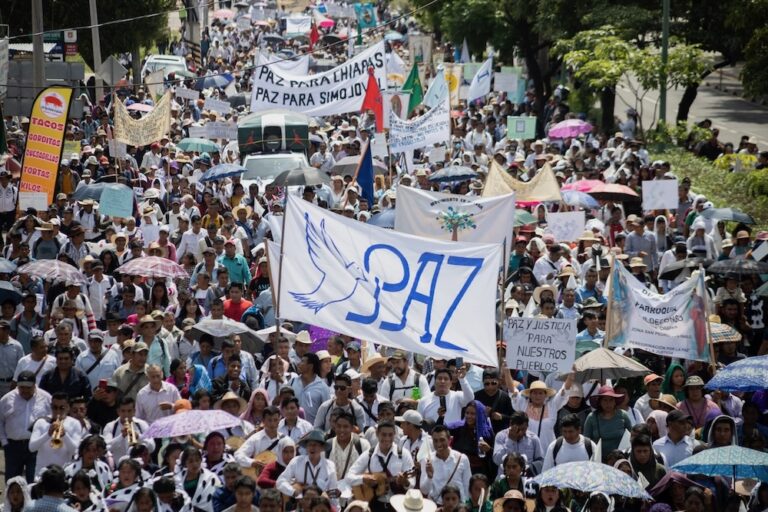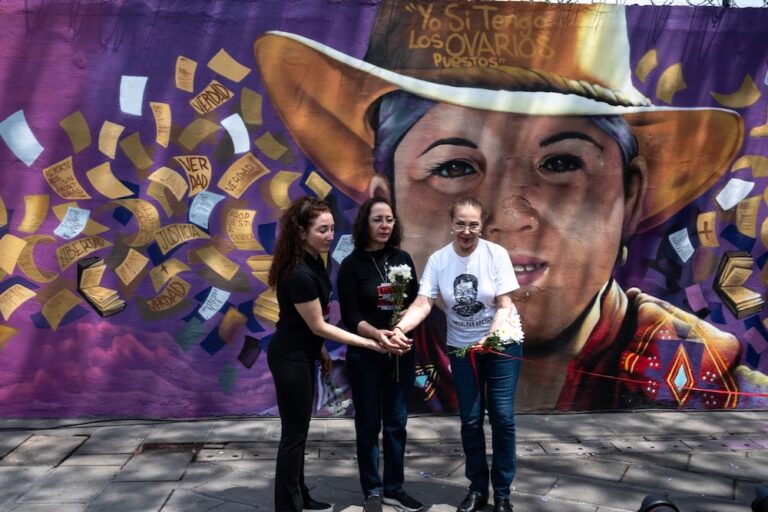(RSF/IFEX) – RSF has voiced deep dismay after Mexico’s Supreme Court of Justice of the Nation (SCJN) ruled narrowly that there was “no serious violation of the individual rights” of freelance journalist Lydia Cacho when she was arrested and held in December 2005 on the orders of governor of Pueblo state, Mario Marín. Cacho brought […]
(RSF/IFEX) – RSF has voiced deep dismay after Mexico’s Supreme Court of Justice of the Nation (SCJN) ruled narrowly that there was “no serious violation of the individual rights” of freelance journalist Lydia Cacho when she was arrested and held in December 2005 on the orders of governor of Pueblo state, Mario Marín.
Cacho brought out a book in 2004, entitled “Los Demonios del Edén” (Demons in Eden), in which she accused politicians and businessmen of participation in a paedophile network.
“Lydia was the target of constant threats, attacks, and murder attempts culminating in a brief detention in 2005, ever since her 2004 exposure of the existence of a paedophile network implicating top-level figures,” RSF said.
“The SCJN has given a real boost to impunity by clearing the governor of Puebla, Mario Marín, on this point, despite overwhelming evidence and daring to say, against all the evidence, that Lydia Cacho’s constitutional rights had not been trampled on,” said the organisation.
“The epilogue of this serious case constitutes a disturbing precedent for press freedom and human rights in Mexico”.
“The court’s decision is a defeat for Mexican journalists who inform the public and investigate cases linked to human trafficking. The judges are sending a message to the country that cases of this kind will not even be brought before the courts,” said Cacho, after hearing the outcome of the case.
The judges on the SCJN voted six to four that the “existence of a serious violation of individual rights under Article 97 of the Constitution had not been demonstrated”. They said that Cacho was the victim of “minor irregularities” during her arrest and transfer from Quintana Roo State in eastern Mexico, where she lives, to Puebla state, where Mario Marín is the governor. The high court thus threw out all the charges against the governor on 29 November 2007.
Recordings of telephone conversations revealed by the daily “La Jornada” and broadcast on W Radio, on 14 February 2006 – of which RSF obtained a copy – between the governor of Puebla and businessman Kamel Nacif, who was cited in the paedophile case, appeared to prove the involvement of the two men in Cacho’s arrest.
The governor and the company boss apparently suggested “jokingly” that the journalist should be raped during the transfer. The SCJN ruled that the recordings were not convincing.
This decision contradicts the report submitted to the court by Judge Juan Silva Meza on 26 November 2007, in which he said he believed that there was “an agreement between the authorities of Puebla and Quintana Roo to violate journalist Lydia Cacho’s individual rights.” The governor, the prosecutor general, the president of the Puebla high court, four judges and several government officials were all accused in the report of collaborating in the violation of Cacho’s rights.


